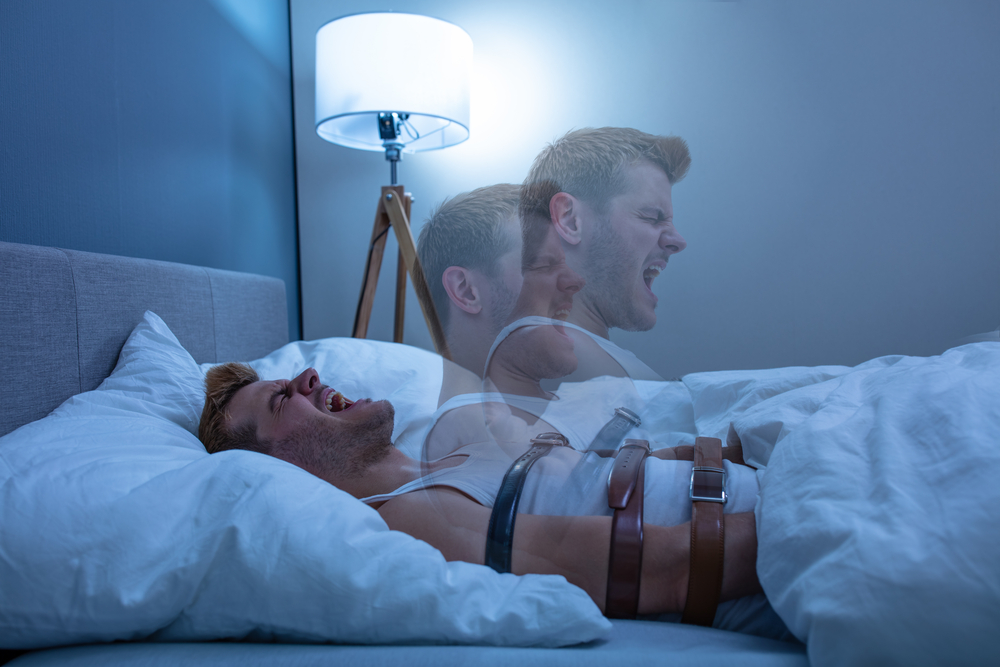Sleep Paralysis: Causes, Symptoms, Treatment & Prevention
Written By: Dr. Vishal Gurunath Pawar
Updated On:December 27, 2023

What is Sleep Paralysis?
If you have ever been in a state of sleep yet felt awake, then you might have experienced an episode of sleep paralysis. When sleep paralysis occurs, individuals may have hypnopompic or hypnagogic hallucinations during episodes, which can be sensory, aural, or visual. Hence, when you have sleep paralysis, you are unable to speak or move as you are waking up or falling asleep. Although it can be frightening, it's completely safe and most individuals only have it once or twice in their lifetime.
Symptoms of sleep paralysis include the following:
- You feel as though someone is in your room.
- You feel as though you are awake but are unable to talk, move, or open your eyes.
- You feel as though something is forcing you down.
- You feel scared.
Sleep paralysis may persist for a few seconds and may last up to several minutes.
Causes of Sleep Paralysis
When you can't move your muscles as you're waking up or dozing off, you are experiencing an episode of sleep paralysis. Sleep paralysis has you in sleep mode with your brain still working.
Although the causes of sleep paralysis are unclear, they include the following:
- Jet lag
- Change in sleeping schedules
- Narcolepsy
- Post-traumatic stress disorder (PTSD)
- Panic disorder
- Generalized anxiety disorder
- A family history of sleep paralysis
Symptoms of Sleep Paralysis
The signs and symptoms of sleep paralysis include the following:
- Feeling as though your limbs are paralyzed
- Inability to speak
- Feeling of suffocation
- Hallucinations
- Fear
- Panic
- Helplessness
- Tightness in the throat
- Sleepiness throughout the day, which may indicate narcolepsy
When to see a doctor for Sleep Paralysis?
You probably have isolated recurring sleep paralysis if you occasionally find yourself unable to move or speak for a few seconds or minutes when falling asleep or waking up. Treatment for this condition is frequently not necessary.
However, if you are anxious about your symptoms, consider consulting your doctor. Also, if your symptoms keep you up at night and cause exhaustion during the day, it might be a good idea to consult with your doctor.
Sleep Paralysis Risk Factors
Sleep paralysis is remarkably ubiquitous in its prevalence and universality, and it can happen to otherwise normal sleepers. Moreover, it has been connected to circumstances including elevated stress, excessive alcohol use, lack of sleep, and narcolepsy.
Sleep Paralysis Complications
While sleep paralysis is not life threatening, it is still an unpleasant experience. After episodes of sleep paralysis, some may experience feelings of anxiousness.
Sleep Paralysis Diagnosis
Following an examination, medical professionals either confirm or rule out sleep paralysis. Your doctor might inquire about the following to verify whether your symptoms are those of sleep paralysis:
- How frequently you encounter sleep paralysis
- When did sleep paralysis start
- Sleep-related factors, including duration of sleep
- Medical history
- Mental health disorders
- History of sleep paralysis in the family
If your healthcare professional thinks you could have a sleep disorder, they might suggest testing. You may require one of the following:
- Overnight sleep study (polysomnogram): During the test, your heartbeat, respiration, and brain activity are all monitored. It might make it possible for medical professionals to watch a case of sleep paralysis or find problems like sleep apnea.
- Multiple sleep latency test (MSLT): This test evaluates your ability to fall asleep fast and the quality of your sleep during a break. The test aids in identifying conditions like narcolepsy, the most prevalent cause of sleep paralysis.
Sleep Paralysis Treatment
Most individuals with sleep paralysis don't require any treatment. If you have trouble falling asleep or are feeling anxious, you may find relief by treating any underlying problems. Treatments to sleep paralysis may include the following:
Changing your sleeping patterns to ensure you get six to eight hours a night of sleep
- Take antidepressants as direct to control sleep cycles
- Address any mental health concern that might be a factor in sleep paralysis
- Treat narcolepsy
A doctor may suggest medication or psychotherapy to treat sleep paralysis brought on by narcolepsy or other sleep disorders. The following medications may be used to treat narcolepsy-related sleep paralysis:
- Tricyclic antidepressants
- SSRIs
- Xyrem (sodium oxybate)
In addition to addressing underlying problems, including insomnia and bad sleeping habits, cognitive behavioral therapy may assist individuals in developing coping methods for sleep paralysis episodes.
Sleep Paralysis Prevention
You can't really do anything to stop sleep paralysis from happening. Yet you may take precautions to reduce your risk. These include the following:
Enhancing the quality of your sleep is among the best strategies to prevent sleep paralysis. This is possible by:
- having a regular sleep schedule with set hours for bed and wake-up,
- establishing a quiet, dark environment that is conducive to sleep,
- putting computers, e-readers, phones, and tablets away before going to bed,
- and taking a bath, reading, or listening to calming music to unwind before bed.
References
Denis, D., French, C. C., & Gregory, A. M. (2018). A systematic review of variables associated with sleep paralysis. Sleep Medicine Reviews, 38, 141-157.
Goode, G. B. (1962). Sleep paralysis. Archives of Neurology, 6(3), 228-234.
Sharpless, B. A., & Barber, J. P. (2011). Lifetime prevalence rates of sleep paralysis: a systematic review. Sleep medicine reviews, 15(5), 311-315.
Meet our doctors from the Neurology department



















